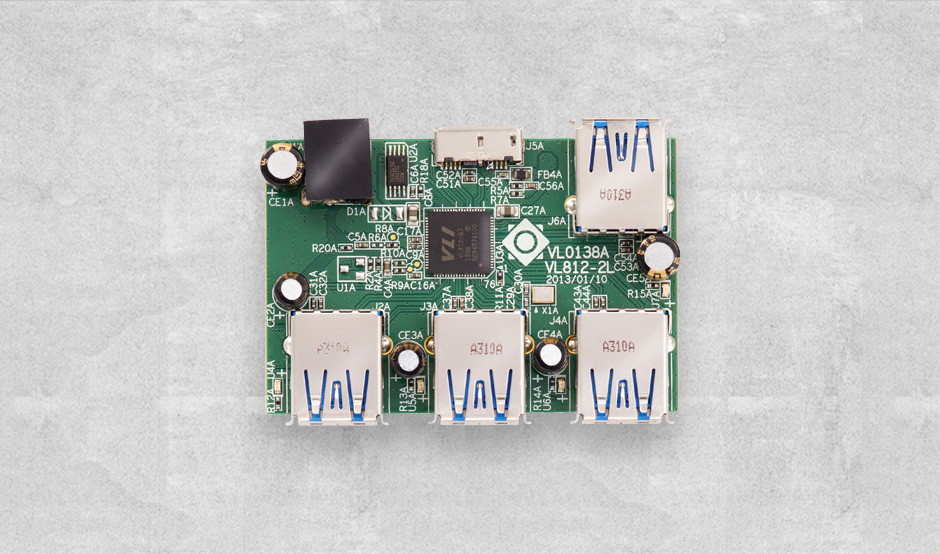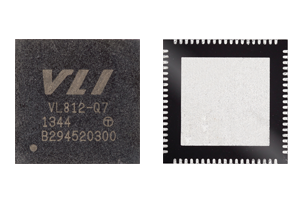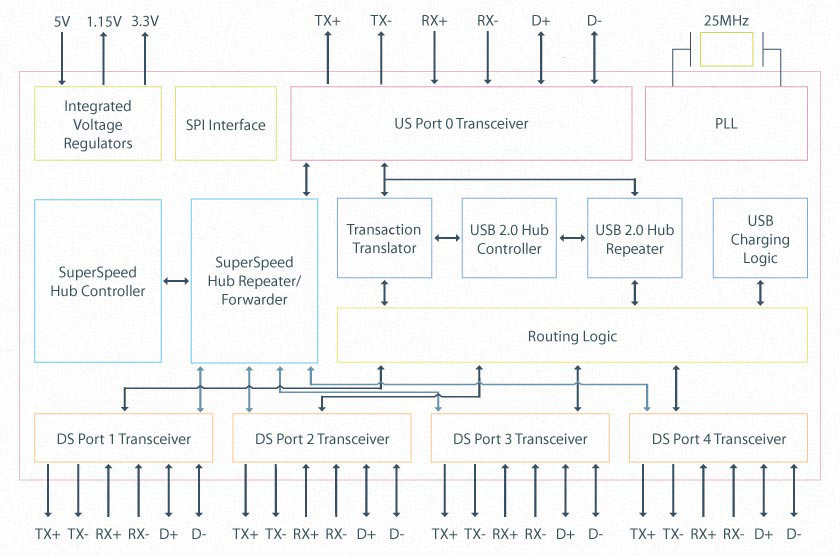 日本語
日本語


 |
|
|
The VIA Lab’s VL812 4-port USB 3.0 hub controller is a 3rd generation fully-integrated single-chip solution which emphasizes low-power design and an industry-first integrated 5V DC-DC switching regulator. VL812 offers high performance, high power efficiency, and reduced overall system BOM, making it an ideal choice for mobile and other low-power applications. The VIA Lab’s VL812 hub controller supports the higher transfer rates of the USB 3.0 specification, allowing maximum data transfer rates of up to 5Gbps, or ten times the throughput available to USB 2.0. In addition to rapid transfers, VL812 integrates battery charging controller logic, enabling Dedicated Charging Port (DCP) and Charging Downstream Port (CDP) functionality as described in the USB Battery Charging 1.2 specification, as well as a charging in sleep mode feature that supports special vendor modes. When a USB Battery Charging-compatible device is attached, the device can charge over 3 times faster than conventional hubs or hosts. CDP mode allows users to transfer data while simultaneously charging their device at the same rate as when charging from an AC adapter. The VIA Lab’s VL812 enables four USB devices to be connected to a single downstream port on the host computer or another hub. Employing an advanced CMOS process, its integrated in-house USB PHY enables one upstream port and four downstream ports support Super-Speed transfer, but are also backwards compatible with previous USB specifications and offer support for Hi-Speed (480Mbps), Full-Speed (12Mbps), and Low-Speed (1.5Mbps) traffic. The VIA Labs in-house USB PHY also features adaptive equalization, allowing for industry-leading signal-integrity over a variety of topologies and channel conditions. Employing a well-planned pin-out and advanced manufacturing process, devices based on VL812 can enjoy easy layout and a low working temperature in the most compact device housing. Full sideband signal pins are available for showing power enable, over current, and LED status control. The SPI interface supports external Flash for firmware upgrades or additional software enhancements. The VIA VL812 is available in a QFN-76L green package (9x9x0.85 mm) to fit small form-factor designs. VIA Lab’s VL812-based hub devices enjoy full and comprehensive driver support on all modern operating systems including Windows, OSX, and Linux, making the VL812 well suited for stand-alone USB hubs, desktop PC front panel hubs, on-board hubs, docking systems, and USB hub compound devices including mouse, keyboard, display and printer USB devices. |
 |



